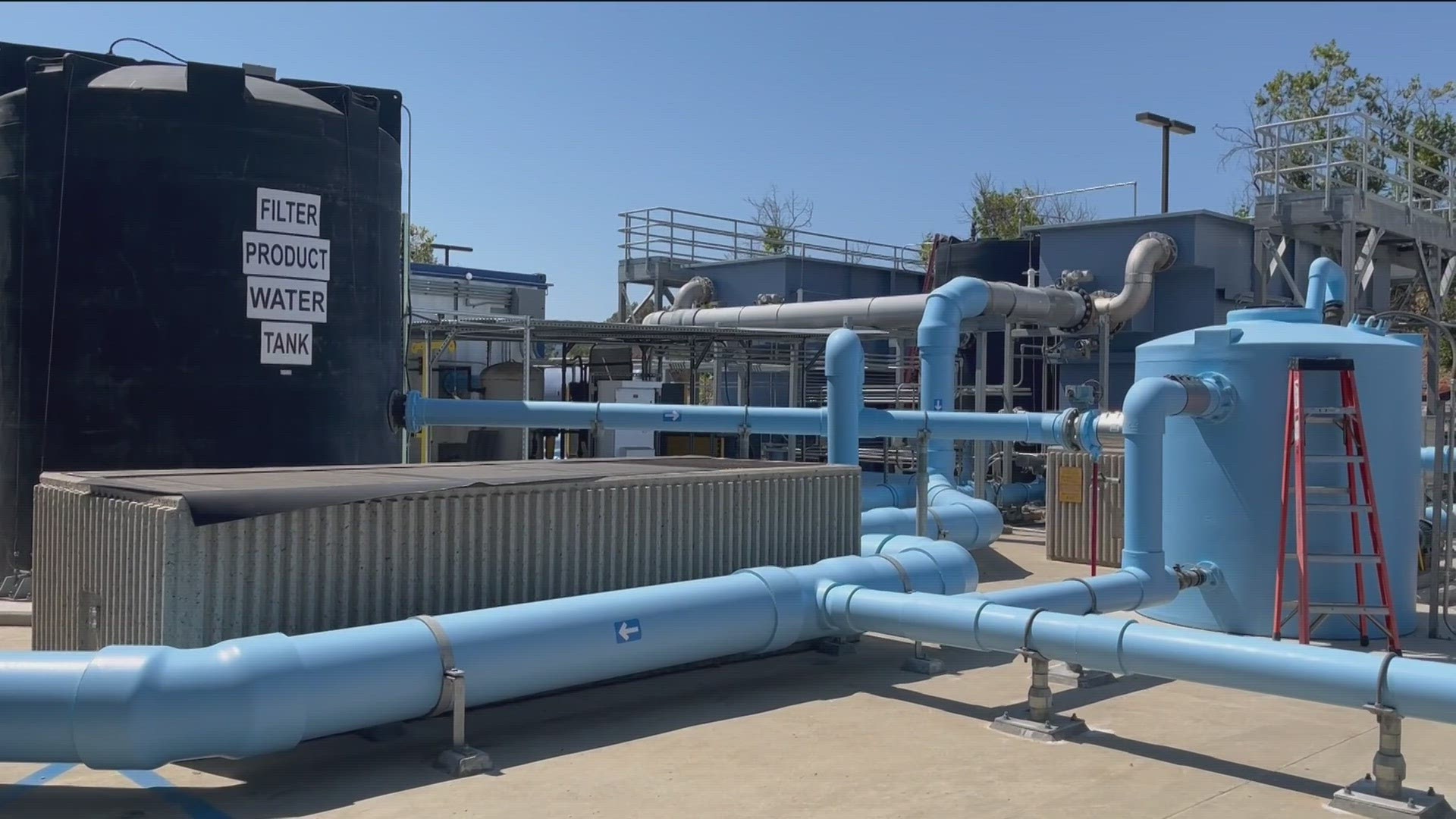SAN DIEGO — California is looking to boost water supply and considering new regulations to recycling wastewater straight to your tap. Some refer to it as toilet to tap, however experts in the field say this phrase is anything but accurate.
"It never has been toilet to tap. That has never happened," said Andrew Salveson, the Carollo Water Reuse Chief Technologist.
CBS 8 visited San Diego's Pure Water project. It's in phase one of construction and will supply nearly half of the city's drinking water by the end of 2035. The water goes through a rigorous recycling process. Our crews got to see it all happen at the Pure Water demonstration site.
"Five different treatment steps," said Dough Campbell, the deputy director of Pure Water operations.
Campbell said water is treated at a wastewater plant before it ever arrives to Pure Water. Then the water goes through a five step process of ozone, biologically active carbon filters, membrane filters, reverse osmosis and ultraviolet lighting.
"We've done over 50,000 tests to ensure the quality of the water is consistent 24/7, 365 and it's a very exciting part of our water supply future," he said.
The water at Pure Water will then go to the Miramar Reservoir. This acts as an additional way to test and treat it. Now the state is looking to bypass this step, piping rigorously purified drinking water straight to the tap. This new direct process has its benefits, water technologists say.
"California is doing the most. If you look at the large projects being implemented in San Diego, Los Angeles and considered in northern California. We will double or triple the amount of purified recycled water," Salveson said.
He says more extensive water treatment will be required under these new guidelines. The new method will use more energy but can be cost effective in other ways. Imported water is only expected to get more expensive.
"It's important to note that it costs more money to move water than it does to treat water. Water is really heavy. Pumping it long distances or to basins far away makes it more expensive," he said.
San Diego's Pure Water project will reduce the need to buy imported water. The city says they anticipate water rates to increase at a slower pace because of this.
The new direct recycling method opens doors for cities located far from a reservoir. It allows them to have their own local water supply. This provides a dependable source as climate change continues. The state is expected to finalize its draft for these new water recycling regulations by the end of this year. San Diego has had a big part in it
"The San Diego efforts have really been pioneering," Salveson said.
Pure Water project's demonstration facility was used as a test site in creating the new regulations.
"It's very interesting. The state's criteria already match what Pure Water San Diego has done," he said.
San Diego's North City Pure Water Facility is expected to be the first site in the state that follows this innovative five step treatment process. It's a process that CBS 8 is told closely aligns with the state's new rules for direct water recycling.
"We'd be fairly well set to make that transition," Campbell said.
It could be considered in the next phase of the pure water project.
"Pure Water has another phase to it. Phase two which will improve facilities in the central part of the city so direct potable reuse might be considered in the next phase of Pure," said Amy Dorman, the assistant director at Pure Water.
WATCH RELATED: South Bay wastewater plant in need of urgent repair after Tropical Storm Hilary

